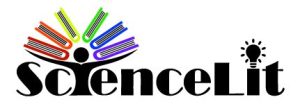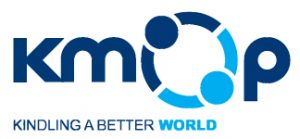KMOP is one the oldest Greek NGOs with 40 years of accumulated experience in the provision of services to disadvantaged groups. KMOP’s main areas of expertise include employability, social inclusion, youth and education, gender equality, mental health, entrepreneurship and social economy, scientific research and the development of know-how in social policy issues. Apart from direct provision of services through decentralised community based facilities (Three Group Houses and one Day Care Centre for mentally ill as well as counseling centers in various towns), KMOP is also actively involved in both national and EU/international projects addressing social issues particularly focusing on low-skilled youth and long term unemployed, victims of violence and trafficking, disabled, elderly, migrants and minorities.
KMOP employs nearly 80 in-house professionals most of whom have advanced degrees and several years of practical experience. Its staff comes from diverse educational backgrounds and disciplines and thus constitutes a rich mix of sociologists, social policy analysts, specialists in public health and education, psychologists, economists, lawyers and political scientists. In addition to our permanent staff, KMOP has a wide network of international experts as well as partnerships with first-class educational institutions with expertise in the fields of: employment, social policy, public administration, economics, education, and health.
KMOP is following international trends in its areas of interest by cooperating with other organizations and institutions at European level. For this purpose, KMOP is a member of international and national networks, like the Confederation of Family Organisations in the European Union (COFACE), the Association of Local Democracy Agencies (ALDA) and the Greek Network for Combating Poverty. Furthermore, KMOP has established collaborations with NGOs, Universities and other organizations in a number of European countries, in the Balkans and in Asia.
KMOP is a learning organisation, where individual/collective reflection and learning lead to improved ways of working, achieving goals and innovation. Staff and external experts are therefore encouraged to learn from their daily experience in our projects in different ways, e.g. by reflecting critically on what went well, what could have gone better, and what implications a project may have on future work. As a learning organisation, we constantly assess the impact of our endeavours and strive to make targeted and sustainable changes.
KMOP has developed a quality assurance system that combines flexibility with an effective design structure and assists its internal staff and external experts to provide effective people-centred programmes and services. The system is premised on clear quality standards and measurement thresholds that identify when and what corrective action may be needed to eliminate causes of unsatisfactory project performance. Quality standards include standards for project processes, product functionality, regulatory compliance requirements, project deliverables and project management performance. Moreover, the system further benefits from its clear step-by-step control processes and self-correction through planned project reflection time. The practice of quality control focuses on areas such as: prevention (keeping errors out of the process); inspection (keeping errors out of the remit of the project beneficiaries); tolerances (the degree to which results are within an acceptable range. The main outcomes of quality control activities include: acceptance decisions (decisions as to whether the services are accepted or rejected); rework (actions taken to correct rejected services); process adjustments (action taken to correct or prevent future quality problems).
KMOP has long been engaged in the development and delivery of social inclusion and lifelong learning programmes targeted at vulnerable groups in particular, NEET, low skilled, unemployed, people with disabilities, 55+, and minority groups such as migrants and Roma populations. KMOP’s work in this area involves: provision of policy advice; development of policy guidance; introduction of innovative tools, and; conduction of research and analysis.
KMOP’s main goal and vision is to contribute to making a positive difference in the lives of socially vulnerable groups (including , NEET, low skilled, unemployed, people with disabilities, 55+, and minority groups), bringing about sustainable improvements in their lives. KMOP’s objectives include: Stimulate the full community integration and active participation of disadvantaged groups; Combat social exclusion and promote social cohesion and equality; Enhance the wellbeing of vulnerable groups in a sustainable manner by strengthening their capacities and increasing their access to resources; Introduce innovative tools.
Education and training activities for adults have been carried out extensively during the past two decades through a series of Vocational Training programs implemented by KMOP in collaboration with Vocational Training Centres. In particular, at EU level, KMOP has substantial experience in lifelong learning initiatives, participating in international consortia, offering stimulating learning opportunities to young adults, seniors and socialy volnurable groups. Since the beginning of 2014, KMOP is implementing a number of related projects promoting access to continuous education and training (‘RE-POD’, ‘MINGLE’, ‘ValidVol’, ‘BADGE’, ‘Youth2Work’, ‘Scaling New Heights in VET’, ‘SetCare’ ‘CABURERA’ etc.) focusing on building key skills youth and adults. In these projects KMOP has offered on-the-ground technical support in designing new educational tools, and helping set up systems that optimise lifelong learning and education opportunities. In recent years (2011-2014) KMOP has implemented a number of large-scale community-based projects across Greece dealing with employability promotion in general (Community Service Programmes) and the promotion of social entrepreneurship in particular (Local actions for Social Integration of Vulnerable Groups Programme (TOPEKO). Between 2011 and 2013 KMOP implemented a large number of Community Service Programmes in 5 different Greek regions, aimed at supporting more than 5.000 unemployed to re-enter the labour market while, since 2012, more than 1500 beneficiaries have benefited from the TOPEKO Programme in the framework of which KMOP has developed more than 20 Local Action Plans for Vulnerable Groups designed to promote social entrepreneurship among unemployed. These projects involved the design and implementation of multi sector local development strategies by mobilising unemployed persons belonging to disadvantaged and socially vulnerable groups.

